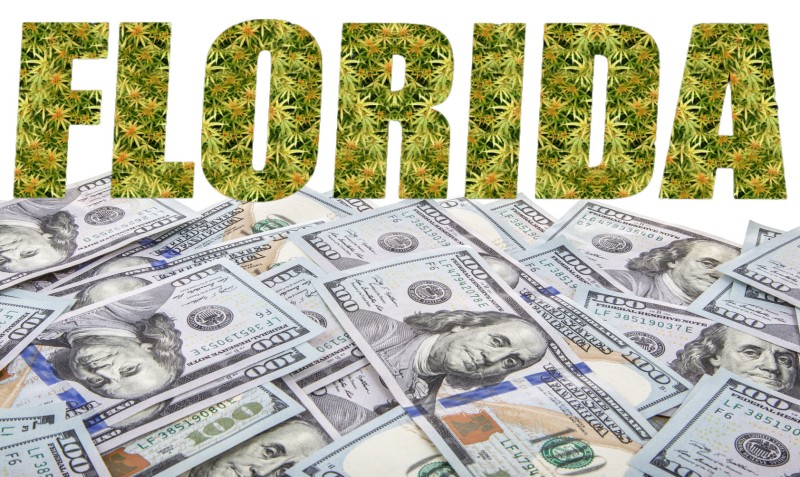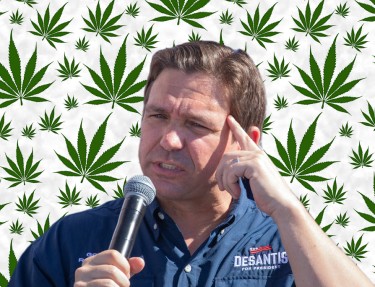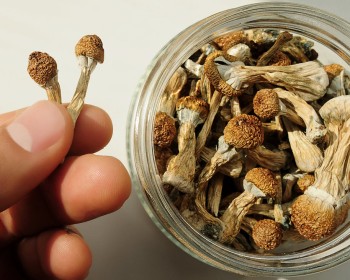
In the evolving landscape of cannabis legalization across the United States, Florida stands out as a significant battleground. Despite vehement opposition from Governor Ron DeSantis, the movement to legalize cannabis in Florida has gained unprecedented traction. This is evidenced by the recent shattering of all fundraising records related to the cannabis legalization amendment. This article delves into the dynamics of this historic movement, the factors contributing to its financial success, and the potential implications for the state and beyond.
In the ongoing battle over Florida’s constitutional amendments to legalize recreational marijuana and access to abortion, Governor Ron DeSantis is facing a huge fundraising disadvantage. His recently created Florida Freedom Fund, with the stated goal of defeating these two amendments has raised a meager $10,000 — an amount that pales in comparison to the millions amassed by proponents of the cannabis amendment.
Smart & Safe Florida, the committee leading the initiative, which is the best-funded cannabis legalization amendment in American history, reported it had has raised over $60 million, according to June 10 campaign filings. DeSantis' Freedom Fund reported having raised $10,000 in the five weeks of fundraising activity ending June 21, according to Florida Politics. Both amendments will be decided in the November 2024 elections. Florida-based Trulieve has reportedly spent more than $40 million to get the measure on the ballot.
The Context of Cannabis Legalization in Florida
The push for cannabis legalization in Florida is not a new phenomenon. Over the past decade, the state has seen a gradual shift in public opinion, mirroring national trends. Several key factors have contributed to this changing attitude:
-
Medical Marijuana Success: In 2016, Florida voters approved Amendment 2, legalizing medical marijuana. This significant milestone demonstrated widespread support for cannabis reform, laying the groundwork for further legalization efforts.
-
Economic Considerations: The potential economic benefits of legalizing cannabis cannot be overstated. Proponents argue that legalization could generate substantial tax revenue, create jobs, and stimulate local economies.
-
Criminal Justice Reform: Advocates highlight the need for reforming drug laws that disproportionately affect minority communities. Legalization is seen as a step towards rectifying these systemic injustices.
-
Public Health and Safety: With robust regulations, legal cannabis can be safer and more controlled than illicit alternatives, reducing the risks associated with unregulated markets.
Governor Ron DeSantis' Opposition
Governor Ron DeSantis has been a vocal opponent of cannabis legalization, a stance that aligns with his conservative base. His opposition is rooted in several concerns:
-
Public Health Risks: DeSantis argues that legalization could lead to increased usage, particularly among youth, and associated health risks.
-
Law Enforcement: There is apprehension about the impact of legalization on law enforcement, with concerns about impaired driving and other public safety issues.
-
Regulatory Challenges: Ensuring a well-regulated cannabis market poses significant logistical and administrative challenges, which DeSantis believes the state is not adequately prepared to handle.
-
Political Ideology: As a conservative leader, DeSantis’ stance reflects broader ideological opposition to drug legalization, rooted in traditional views on morality and public order.
Record-Breaking Fundraising Efforts
Despite DeSantis' opposition, the campaign for cannabis legalization has shattered all previous fundraising records. Several factors have driven this unprecedented financial support:
-
Grassroots Support: The movement has galvanized widespread grassroots support, with small donations pouring in from individuals across the state who are passionate about the cause.
-
Big Donors and Advocacy Groups: Major contributions from pro-legalization advocacy groups and wealthy donors have significantly bolstered the campaign's coffers.
-
Corporate Interest: The potential for a lucrative cannabis market has attracted investments from businesses and entrepreneurs eager to capitalize on the emerging industry.
-
Public Relations Campaigns: Effective public relations strategies have mobilized public opinion and driven fundraising efforts, highlighting the benefits of legalization and countering opposition narratives.
Key Players in the Fundraising Campaign
The success of the fundraising campaign can be attributed to the concerted efforts of various key players:
-
Advocacy Groups: Organizations such as NORML (National Organization for the Reform of Marijuana Laws) and the Marijuana Policy Project have been instrumental in mobilizing support and resources.
-
Political Action Committees (PACs): Pro-cannabis PACs have played a crucial role in coordinating fundraising efforts and channeling funds into strategic initiatives.
-
Celebrities and Influencers: High-profile endorsements from celebrities and social media influencers have amplified the campaign's reach and appeal.
-
Local Activists: Grassroots activists and community organizers have been at the forefront of the movement, engaging with local communities and driving grassroots fundraising efforts. Conservatives like Ken Griffin are donating millions to try and stop the movement as well.
The Path to Legalization: Legislative and Electoral Processes
The road to cannabis legalization in Florida involves navigating complex legislative and electoral processes. Key steps in this journey include:
-
Drafting the Amendment: Legal experts and advocacy groups collaborate to draft a comprehensive amendment that addresses regulatory, economic, and social justice concerns.
-
Gathering Signatures: To qualify for the ballot, supporters must gather a substantial number of signatures from registered voters across the state.
-
Public Campaigning: Proponents launch extensive public awareness campaigns to educate voters on the benefits of legalization and counter opposition arguments.
-
Legislative Hurdles: The amendment must clear various legislative hurdles, including approval by the Florida Supreme Court to ensure it meets legal requirements.
-
Voter Approval: Finally, the amendment is put to a vote during a general election, requiring a supermajority (60%) for approval.
Potential Implications of Legalization
If the cannabis legalization amendment is approved, it will have far-reaching implications for Florida:
-
Economic Impact: The legal cannabis market could generate significant tax revenue, create jobs, and attract investment, providing a substantial boost to the state economy.
-
Public Health and Safety: Proper regulation can ensure the safety and quality of cannabis products, reducing the risks associated with the unregulated market.
-
Criminal Justice Reform: Legalization could lead to a reduction in drug-related arrests and convictions, alleviating the burden on the criminal justice system and addressing social justice concerns.
-
Political Landscape: The success of the legalization movement in a traditionally conservative state like Florida could influence the broader national conversation on cannabis reform.
Challenges and Future Outlook
Despite the record-breaking fundraising success, the path to legalization is fraught with challenges:
-
Political Opposition: Governor DeSantis and other conservative leaders are likely to continue their opposition, potentially influencing public opinion and legislative actions.
-
Regulatory Framework: Developing a robust regulatory framework to govern the legal cannabis market will require careful planning and coordination among various stakeholders.
-
Public Health Concerns: Addressing concerns about increased usage, especially among youth, and ensuring public safety will be critical to the success of legalization efforts.
-
Federal Uncertainty: The federal legal status of cannabis remains uncertain, creating potential challenges for state-level legalization efforts.
Conclusion
Florida's cannabis legalization amendment represents a pivotal moment in the state's political and social landscape. Despite fierce opposition from Governor Ron DeSantis, the movement has achieved unprecedented fundraising success, reflecting widespread public support and the potential for significant economic and social benefits. As the state moves closer to a potential vote, the outcome will not only shape Florida's future but could also have a profound impact on the national dialogue surrounding cannabis legalization. The journey ahead is complex and challenging, but the record-breaking fundraising efforts signify a powerful and determined movement poised to make history.






